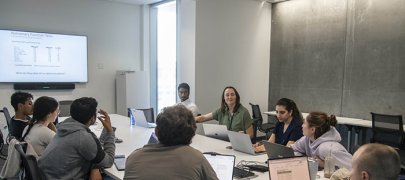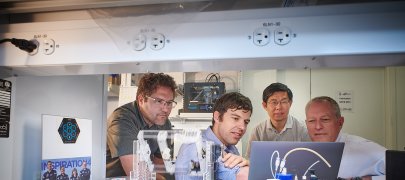Arizona's Family
Temperatures around Phoenix can stay well above 100 degrees Fahrenheit for hours after sundown, which can take a toll on both physical and mental health. People exposed to intense heat for too long will often exhibit symptoms of heat exhaustion or heat stroke. "Newcomers to the Valley who don't know how bad the heat can be. The problem with the dry heat is you don't know because you're not sweating that you're losing water," said Shad Marvasti, MD, MPH, associate professor of Family, Community and Preventive Medicine and director of Public Health, Prevention and Health Promotion at the college. "Before you know it, you're at a point of heat exhaustion."
About the College
Founded in 2007, the University of Arizona College of Medicine – Phoenix inspires and trains exemplary physicians, scientists and leaders to optimize health and health care in Arizona and beyond. By cultivating collaborative research locally and globally, the college accelerates discovery in a number of critical areas — including cancer, stroke, traumatic brain injury and cardiovascular disease. Championed as a student-centric campus, the college has graduated more than 800 physicians, all of whom received exceptional training from nine clinical partners and more than 2,700 diverse faculty members. As the anchor to the Phoenix Bioscience Core, which is projected to have an economic impact of $3.1 billion by 2025, the college prides itself on engaging with the community, fostering education, inclusion, access and advocacy.


